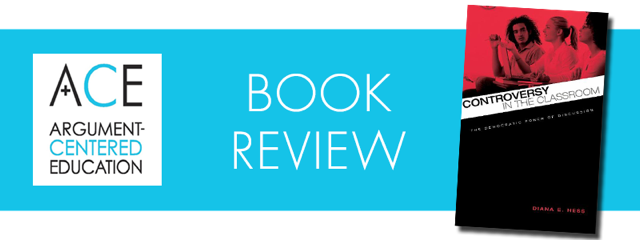Model Flowing on Google Sheets
In structured argumentation activities and classroom debating formats, tracking arguments on a graphic organizer — called a “flow sheet,” in competitive debate parlance — is essential. “Flowing” both enables and enforces refutation, and it makes the process of argumentation, and the unfolding of a debate, traceable and more objective. It may be the single most important way we have in argument-centered instructional work of de-mystifying — and therefore teaching — the process of academic argumentation.
But flowing is a complex and difficult activity — actually series of activities — involving critical listening, summary, and refutation itself. So it is important that the teacher model flowing; we are proponents of extensive modeling, and even when you’re requiring that students be flowing independently, you can be flowing for students as a model, and so that they can consult your flow when they (almost inevitably) lose track or get lost during the debate.
An Argument-Centered Approach to Teaching to the U.S. Constitution Exam
One of Argument-Centered Education’s high school partners’ 10th grade U.S. history classes are immersed right now in preparing students for their U.S. Constitution exam. “Time to take a break from our argument-centered projects,” a teacher opined. “Our Constitution exam curriculum is dry and content-heavy. We just to have to fill the kids with the facts about the articles, sections, and amendments, then they reproduce what they’ve learned. We’ll get back to debatification in February.”
Understood, was our first word. Our next two: But wait. We’d like the chance to work with your U.S. history teachers and classes to demonstrate a way of understanding an argument-based pedagogy that applies to contexts in which objectives are information-heavy and seek to instill in students the foundations of knowledge that will enable them later to engage in substantive academic or public debates.
Argument-Centered Content Delivery
Overview
Posters have gone out to schools and districts near and far identifying the five universal steps to argumentalzing instruction — though some posters remain, if you haven’t gotten yours. Previous articles in The Debatifier have (in parts 1 and 2) described criteria and analyzed the process for effectively formulating a debatable issue: the first step in the five-step argumentalization process.
It’s time to take a closer look at the second step to argumentalizing instruction: teaching content through arguments. Students’ obtaining content knowledge and understanding is not only required to meet specific academic objectives across disciplines, it is also (as we see time and again) essential to their ability to make convincing, college-directed academic arguments.
Controversy in the Classroom – A Compelling Introduction to a Pedagogy that Can Democratize 6th – 12th Grade Instruction
University of Wisconsin – Madison Dean of the School of Education Diana Hess is a national leader in argument pedagogy and civics education (and also an academic partner of Argument-Centered Education). Her first full-length publication, Controversy in the Classroom: The Democratic Power of Discussion (Routledge, 2009), helped make her reputation and forge her current trajectory of influence. In this review we’re going to investigate the close connections between the work’s pedagogical theories and 6th – 12th grade argument-centered instruction.
Professor Hess extols the civic and democratizing importance of structuring argument about controversial issues in middle school and high school. She presents a bevy of evidence for this conviction; one example is the 2003 report from the Carnegie Corporation titled “Civic Mission of the Schools,” which she quotes:
Studies that ask young people whether they had opportunities to discuss current issues in a classroom setting have consistently found that those who did participate in such discussions have a greater interest in politics, improved critical thinking and communication skills, more civic knowledge, and more interest in discussing public affairs out of school. Compared to other students, they also are more likely to say that they will vote and volunteer as adults (28).
Controversy in the Classroom provides an especially vivid quote from a teacher involved in one of the work’s referenced studies, developing the idea that arguing in discussion and taking part in classroom debate is essential for airing out differing ideas and views, and is in some ways a prerequisite for students coming to their own independent thinking on important issues that we teach in our classrooms.
Debate at the Poker Table
by Andrew Brokos
I was heavily involved in debate in high school and college, and as an adult I continue to volunteer with debate-related organizations. Professionally, though, I did not pursue a traditional “debater career” in a field such as law or politics. In fact, there’s nothing traditional at all about my career: I’m a professional poker player.
The connection between debating and playing poker is certainly less obvious than between debating and running for office, but the truth is that I credit a lot of my success in poker to the skills that I learned from debating, skills like critical thinking, considering all sides of an argument, and weighing advantages and disadvantages.






